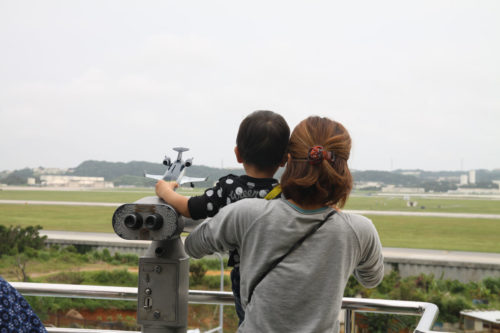Peace is complicatedPosted Apr 24, 2013 |
[Episcopal News Service] The following is a blog from David Copley about the Second Anglican World Peace Conference in Okinawa.
A young mother is holding her son,
Watching planes at the airport.
The child is holding a toy plane,
Excited to see and hear the big jets flying back and forth.
They listen to the roar of the engines
And smell the jet fuel in the air.
A scene that could be anywhere in the world
In this case the family is Japanese,
The planes are American
The airport is U.S. military
The land is Okinawan
Mother and child stand on land soaked long ago,
With the blood of Allied and Japanese soldiers,
And the blood of many, many, Okinawan civilians,
Young and old,
Lives violently cut short.
Military stockpiles,
Guns, bombs, and killing machines of terrifying power.
Noise pollution,
Chemical pollution,
Ancient family land no longer their own,
Occupied by a foreign power,
Speaking a foreign language.
Collateral damage?
A constitution pledged to peace,
Japan has no active military,
Lessons learned from past conflicts,
And memories of Hiroshima.
Tension in Korea,
Threats of war,
Safety and security from a friendly neighbor
With powerful deterrents.
What is the price of peace?
Preparing for a just war
Still costs,
And someone has to pay.
Collateral damage?
We pray for peace,
We wait for the blacksmith,
To beat swords into plowshares.
Meanwhile some live with swords,
And others plough the land.
The mother and child leave the planes
To buy ice-cream.
A day out,
A family living in peace.
The mother offers prays of thanks,
While wishing that the war machines would leave,
And military land returned to farmland.
— The Rev. David Copley is the Episcopal Church’s mission personnel officer and team leader for global partnerships.


Social Menu